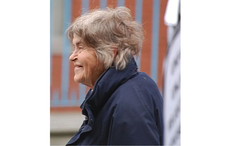John F Kennedy once said, “The courage of life is often a less dramatic spectacle than the courage of a final moment; but it is no less a magnificent mixture of triumph and tragedy.”
When I heard these words in late 2013 they set me on a journey of discovery as part of my final stages of graduate school in Ireland. I wanted to showcase the ongoing battle and stigma attached to mental illness in Ireland. Instead of going down the traditional route of a written thesis, I decided to produce an independent documentary to tell the ordinary stories of ordinary people who are battling against depression in Ireland.
For the most part it shows that mental illness in Ireland is becoming less of a taboo; people are beginning to speak out. They no longer feel ashamed to admit they need help. People like GAA star Conor Cusack have been fundamental in paving the way forward to giving a voice those who suffer with mental illness and depression.
Suicide has become almost as 'normal' in Irish society as going to the shop for a pint of milk. We all know a family that has been rocked by the death of a loved one by suicide.
One Irishman willing to share his experience with suicide was Tony Sheridan, an academic at the University of Limerick. Tony’s life changed ultimately with his mother’s death by suicide, which also brought him on a new personal journey. He had to re-evaluate his own life and battle his own demons. He acknowledges that staying away from alcohol was the best decision as it would have been so easy for him to “hit the bottle.” Instead, he channelled his demons in the gym and through exercise got a new outlook and focus on life.
His connection to the rest of his family strengthened, which he takes as a positive. Perhaps, in ways, it was his mother's parting gift, the native Monaghan lad says.
He now acknowledges there were tell-tale signs prior to his mother’s death. On that fatal day when he would lose his mother forever, he got the call from his sister to say she had called to their mother’s home, the door was unlocked, her bag still in the house and a loaf of bread defrosting on the counter.
"It's in those painstaking moments you come to realize that you have probably lost that person forever; the person who gave you life is gone.” says Tony.
Tony said that while he did feel angry at his mother for choosing to leave, he now knows that suicide is beyond control in a lot of cases due to chemical imbalances, which research has shown can lead to suicides.
While Tony’s story is not dissimilar from that of other families who have been affected by suicide, it is, however, a very honest account of how he learned to rebuild his life. The taboo attached to taking one’s own life in Ireland means that after the death there comes a time when that person is forgotten because talking about them reminds us of how painful it was when they decided to leave.
This is something the Monaghan man is fighting to change. He believes the power of speech and sharing the experience is what is helping in the battle to break down taboos that still exist in Irish society.
Other participants in this documentary include the stories of a freelance journalist, an elementary school teacher, medical professionals specializing in mental health, and Student Council representatives from some of Ireland’s leading Universities.
The following people shared their stories and experiences in the hope of helping others. Belle, Seabhaíl Ní Guachain, Dr Colman Noctor, Dr Brian McAree GP, Paddy Rocket, Stephen Gary, St Patrick's University Mental Hospital, Minister Kathleen Lynch, The University of Limerick, Trinity College Dublin.
For anyone affected by these stories please visit www.mentalhealthamerica.net
or if in Ireland please visit www.samaritans.org.
Ireland’s Battle with Depression -”It’s all right not to feel okay.” was produced in 2013 by IrishCentral reporter Sean Dunne as part of his Master in Journalism studies at The National University of Ireland Galway.
To listen click here:




Comments